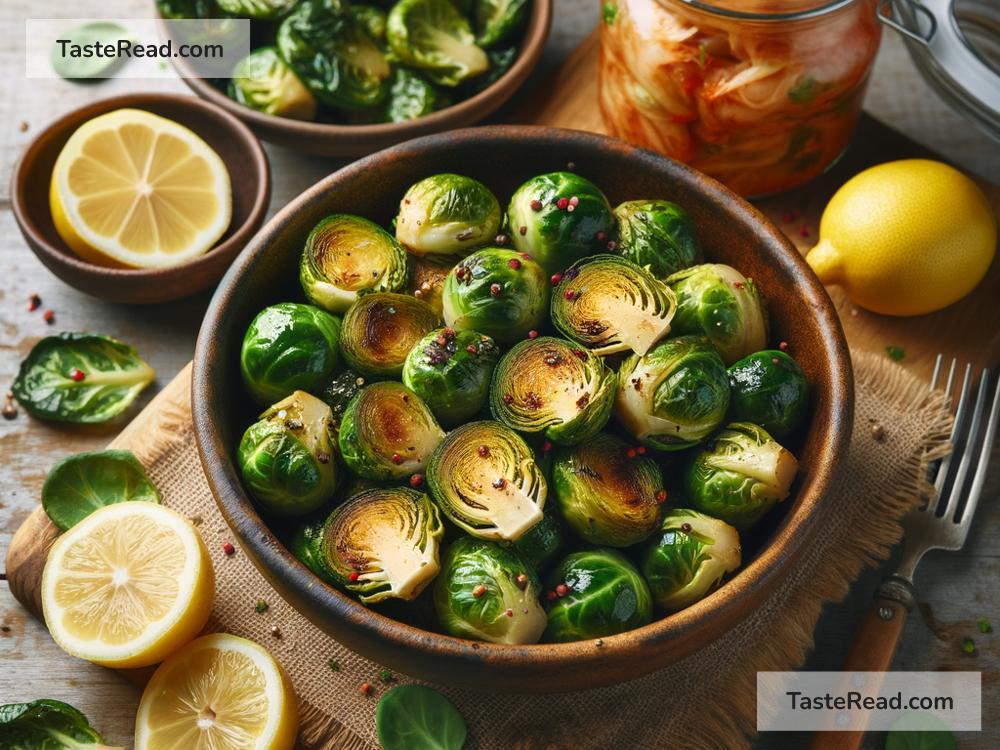The Surprising Benefits of Brussels Sprouts for Gut Health
Brussels sprouts often get a bad reputation, especially among picky eaters. Their strong flavor and slightly bitter taste have earned them a place on the list of childhood “least favorite foods.” But what if we told you that these little green veggies pack a powerful punch when it comes to your gut health? It’s true! Brussels sprouts offer surprising benefits for your digestive system, helping you feel healthier and happier from the inside out.
In this article, we’ll explore what makes Brussels sprouts so special, why they’re great for your gut, and how you can add them to your diet—even if you’re not a fan. Let’s dive in!
What Are Brussels Sprouts?
Brussels sprouts are small, round vegetables that look like tiny cabbages. They belong to the cruciferous vegetable family, which also includes broccoli, cauliflower, and kale. Full of nutrients, Brussels sprouts are low in calories but high in vitamins, minerals, and antioxidants. They’ve been around for centuries and are commonly eaten across Europe and North America.
How Do Brussels Sprouts Support Gut Health?
Your gut is home to trillions of bacteria that work together to break down food, absorb nutrients, and keep your immune system strong. Keeping your gut healthy is important for digestion and overall wellness. Here’s how Brussels sprouts help your gut thrive:
1. Rich in Fiber for Smooth Digestion
Fiber is like a cleaner for your digestive system. It sweeps through your intestines and helps everything move along smoothly. Brussels sprouts are high in dietary fiber, which means they can prevent constipation and improve regularity. When your gut feels good, you feel good too!
Fiber also feeds the friendly bacteria in your gut. These bacteria help break down food and maintain balance in your microbiome (the community of microorganisms in your digestive system). A fiber-rich diet promotes the growth of healthy gut bacteria, reducing the risk of bloating and discomfort.
2. Full of Prebiotics to Boost Gut Bacteria
Brussels sprouts contain prebiotics, which are a type of fiber that acts as food for gut bacteria. Think of prebiotics as fertilizer for your gut garden—they encourage the growth of beneficial bacteria that keep your digestive system happy.
When you eat prebiotic-rich foods like Brussels sprouts, you’re helping good bacteria multiply and crowd out the harmful ones. This balance can improve digestion and protect against issues like irritable bowel syndrome (IBS).
3. Packed with Sulforaphane to Reduce Inflammation
Sulforaphane is a powerful antioxidant found in cruciferous vegetables like Brussels sprouts. Antioxidants help fight inflammation in the body, including in your gut. Chronic inflammation can disrupt your digestive system and lead to problems like leaky gut syndrome, where the lining of your intestines becomes damaged.
By eating Brussels sprouts, you’re giving your gut a dose of sulforaphane to calm inflammation, repair damage, and protect your intestinal lining. This makes your gut stronger and more resilient.
4. Vitamin C for a Healthy Immune System
Brussels sprouts are loaded with vitamin C, which is essential for keeping your immune system strong. A healthy immune system plays a key role in gut health because it helps fight off harmful bacteria and infections. When your immune system is working properly, your gut stays balanced and can focus on digestion instead of defending itself.
5. Regulating Blood Sugar Levels
Another surprising benefit of Brussels sprouts is their ability to help regulate blood sugar levels. Stable blood sugar is important for gut health because big swings in sugar levels can disrupt your microbiome. The fiber in Brussels sprouts slows down sugar absorption, keeping your gut bacteria happy and healthy.
How to Add Brussels Sprouts to Your Diet
If you’ve avoided Brussels sprouts in the past, it might be time to give them another chance. With the right preparation, they can be delicious! Here are some easy ways to enjoy Brussels sprouts:
- Roasted: Toss them in olive oil, sprinkle with salt and pepper, and roast them in the oven. Roasting brings out their natural sweetness and reduces bitterness.
- Sautéed: Cook Brussels sprouts in a pan with garlic, onions, and a bit of butter for a flavorful side dish.
- Shredded: Add raw, shredded Brussels sprouts to salads for a crunchy boost.
- Air-Fried: Use an air fryer to create crispy Brussels sprouts chips as a guilt-free snack.
Experiment with spices and sauces to find a recipe you love. Once you start including Brussels sprouts in your meals, your gut will thank you!
Final Thoughts
Brussels sprouts might not be everyone’s favorite vegetable, but they deserve a spot on your plate—especially if you care about your gut health. With their fiber, prebiotics, sulforaphane, and vitamins, they’re like a superfood for your digestive system. Whether you’re looking to improve digestion, reduce inflammation, or boost your immune system, Brussels sprouts can help.
So, the next time you see Brussels sprouts at the store, don’t hesitate to pick them up. Adding just a few servings to your weekly diet can make a big difference for your gut—and your overall health. Give these mighty little veggies a try and enjoy the many benefits they bring!


